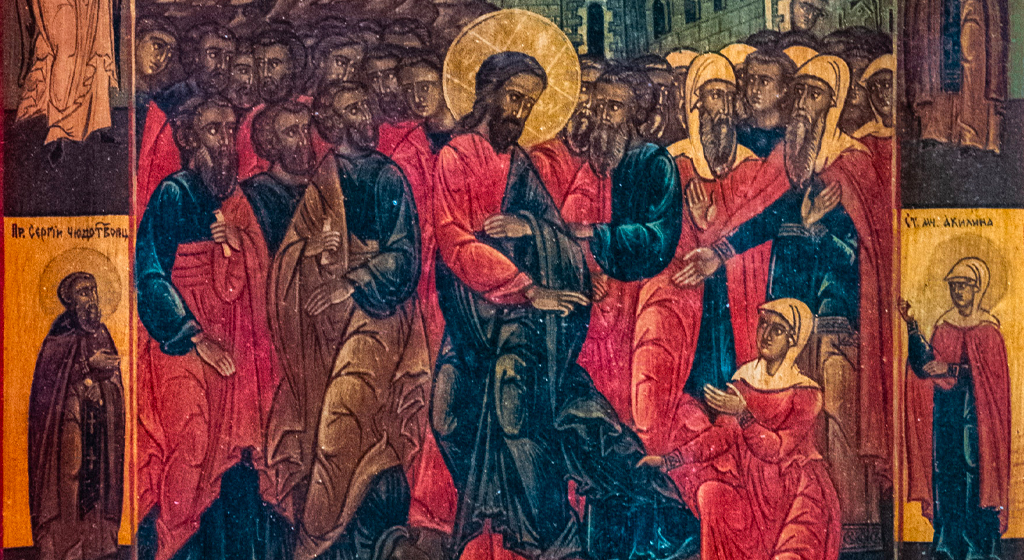Memory of the Poor
Reading of the Word of God
Alleluia, alleluia, alleluia
This is the Gospel of the poor,
liberation for the imprisoned,
sight for the blind,
freedom for the oppressed.
Alleluia, alleluia, alleluia
Luke 21,1-4
Looking up, he saw rich people putting their offerings into the treasury; and he noticed a poverty-stricken widow putting in two small coins, and he said, 'I tell you truly, this poor widow has put in more than any of them; for these have all put in money they could spare, but she in her poverty has put in all she had to live on.'
Alleluia, alleluia, alleluia
The Son of Man came to serve,
whoever wants to be great
should become servant of all.
Alleluia, alleluia, alleluia
Jesus, who is still in the temple, has just put on guard those listeners who behave like scribes and boast about prayers but oppress widows. While he is talking, he observes some rich people who make conspicuous offerings, interested in being noted by others. At a certain moment, a poor widow arrives puts two coins into the treasury. This woman gave everything to God and did not keep anything for herself. Her gesture, in fact, is not born from a self-oriented calculation but only from her love for God. Truly that widow loves God with all her soul, with all her strength, with all of herself, so much as to give all she has to live on. And love has made this gesture immortal, as it makes immortal every word and ever good deed done for the weak and the poor. What seems meaningless to people is made eternal by God. We should note also that the alms that were put into the treasury of the temple were used for the organization of worship, the priests' expenses and help to the poor. The poor widow felt responsible therefore, for helping both worship and the poor. It is important to highlight this, in order to avoid a false concept which divides those who give from those who receive. The poor widow feels responsible for helping even those who may be poorer than she is. We could say that even the poor need to be educated, as all of us, to help those who are poorer than they are. And we could say that no one is so poor as not to be able to help someone else who is poorer. In helping one another, there is a circular movement between those who have and those who have less. Love does not divide us into categories; it unites us in a circular solidarity where we no longer understand who helps and who receives. This is evident in those spaces of charity where those who have know how to give to those who have less; everyone gives and everyone receives. And there is a great truth revealed in this passage: by posing this widow as an example for all of us, Jesus affirms that the poor evangelize us. Yes, they make us, who believe we are healthy, understand our weakness, our smallness, and above all, that which we are before God: poor beggars of love. Gregory the Great, together with the entire Church tradition, reminds us that the poor that we have helped are our most powerful intercessors before God.
